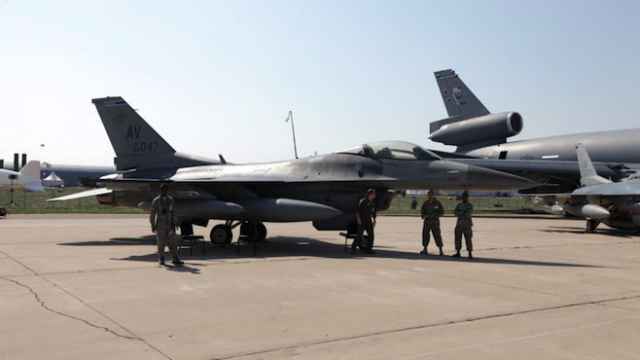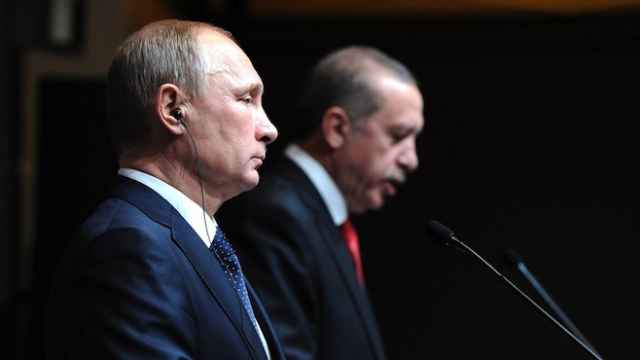Russia ended high-level military talks with Israel on Wednesday with a call on other countries, including a suspicious United States and aggrieved Turkey, to coordinate operations in Syria.
The two countries discussed how they can avoid accidentally clashing while operating in Syria. Israel has been worried that Russia's deployment there, which includes advanced anti-aircraft units and warplanes, could lead to unwanted confrontation.
The talks followed a meeting in Moscow between Israeli Prime Minister Benjamin Netanyahu and Russian President Vladimir Putin at which the two men agreed to set up teams as Russia stepped up military support for Syrian President Bashar Assad.
Russia's most senior diplomat in Israel said on Wednesday that Israel had no reason to fear Russia's presence or actions in Syria.
"Russia will not take any action that will endanger Israel's national security," Alexey Drobinin, minister-counselor at the Russian Embassy, told Israel Radio in an interview in Hebrew.
The Russian delegation was led by First Deputy Chief of General Staff General Nikolai Bogdanovsky, who met his Israeli counterpart, Deputy Chief of Staff Major-General Yair Golan.
The swift emergence of face-to-face contacts between Israeli and Russian generals was in stark contrast to the tenser ties between Moscow, Washington and Ankara.
U.S. Defense Secretary Ash Carter said on Wednesday that the United States would not cooperate militarily with Russia in Syria, although it was willing to hold discussions to secure the safety of its own pilots bombing Islamic State targets in Syria.
Turkey, also a neighbor of Syria, has complained of repeated violations of its airspace. Ankara summoned Russia's ambassador for the third time in four days over the reported violations, which NATO has said appeared to be deliberate and "extremely dangerous."
Drobinin said Russia was starting similar military talks with Turkey and he hoped these would take place too with other countries, including the United States.
"We have a full understanding of Turkey's worries and we think that the right way to allay these fears is to allow professional soldiers to have in-depth discussions. Such a proposal has been made and I think that we are now at the start of such talks between the Russian and Turkish armies," Drobinin said.
"It is important that there should be such talks between Russia and all the countries who are interested in exchanging intelligence and operational information … including the United States," he added.
Israel has attacked Syrian armed forces and arch-foe Lebanese Hezbollah, a Damascus ally, during the four-year civil war in its hostile neighbor. It says it holds the Syrian government responsible for any spillover of violence.
"I think it is a good opportunity to meet and exchange information and to take steps that will allow [the countries] to operate on matters that interest them," Drobinin said.
Russia took Israeli interests into account, not least because of the large Russian-speaking community of over a million who have emigrated to the Jewish state since the mid-1980s, he said.
"We understand that Israel has national security interests and we take these into account when we formulate our regional policies. There are over a million former Soviet citizens living in Israel and we need to take this into account," he said.
A Message from The Moscow Times:
Dear readers,
We are facing unprecedented challenges. Russia's Prosecutor General's Office has designated The Moscow Times as an "undesirable" organization, criminalizing our work and putting our staff at risk of prosecution. This follows our earlier unjust labeling as a "foreign agent."
These actions are direct attempts to silence independent journalism in Russia. The authorities claim our work "discredits the decisions of the Russian leadership." We see things differently: we strive to provide accurate, unbiased reporting on Russia.
We, the journalists of The Moscow Times, refuse to be silenced. But to continue our work, we need your help.
Your support, no matter how small, makes a world of difference. If you can, please support us monthly starting from just $2. It's quick to set up, and every contribution makes a significant impact.
By supporting The Moscow Times, you're defending open, independent journalism in the face of repression. Thank you for standing with us.
Remind me later.





